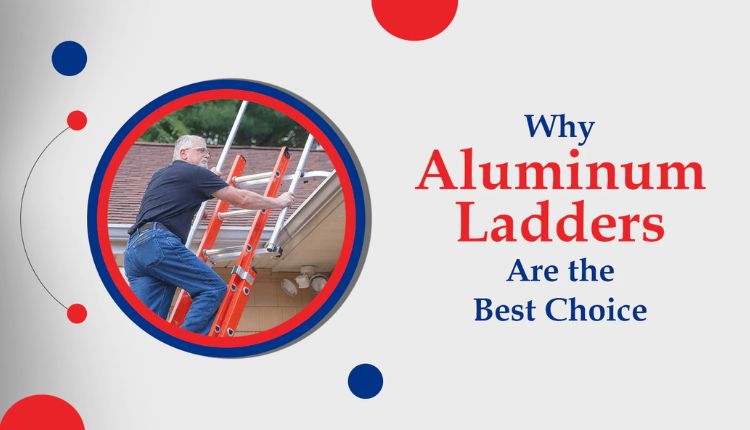For contractors, safety is not just a priority—it is the foundation of every job site. From building houses to handling commercial projects, the right tools and equipment make all the difference between efficiency and unnecessary risk. Among those tools, ladders are used daily for tasks ranging from roof access to electrical installations. Choosing the right type of ladder can significantly reduce hazards and improve productivity. That’s why aluminum ladders for contractors stand out as the most reliable and trusted option in today’s construction industry.
One of the main reasons aluminum ladders are so highly valued is their balance between strength and weight. Contractors often need to move equipment multiple times throughout a workday, sometimes across uneven terrain or up flights of stairs. A ladder that is both durable and lightweight reduces strain, minimizes fatigue, and makes transportation easier without compromising on performance. Unlike heavy steel ladders, aluminum versions can be carried with less effort while still offering impressive load capacities.
Another critical advantage is durability in challenging environments. Job sites expose equipment to dirt, moisture, chemicals, and unpredictable weather conditions. Aluminum resists corrosion, meaning it won’t rust in damp or outdoor settings. This makes it particularly suitable for roofing contractors, painters, and exterior specialists who depend on ladders that can withstand harsh conditions day after day. Fiberglass may also resist weather, but it is heavier and often more expensive, which makes aluminum a more practical choice for many trades.
Safety regulations are another area where aluminum ladders shine. Many modern designs meet or exceed national safety standards, offering non-slip rungs, stabilizing feet, and reinforced locking mechanisms. For contractors managing teams, using equipment that complies with safety requirements not only protects workers but also helps reduce liability. A stable, well-engineered aluminum ladder lowers the risk of falls—one of the most common causes of injuries on construction sites.
Versatility also plays a role in their reliability. Aluminum ladders are available in multiple forms, including step ladders, extension ladders, and multi-position models. This allows contractors to adapt to various job demands without needing a separate ladder for each task. For example, an extension ladder may be essential for roofing work, while a step ladder might be more suitable for interior finishing. By choosing aluminum, contractors can access a wide range of designs that share the same benefits of lightness, strength, and dependability.
Finally, cost-effectiveness cannot be overlooked. Aluminum ladders generally come at a more accessible price point than fiberglass, while offering better long-term value than steel. Their resistance to rust means fewer replacements, and their lightweight nature translates into easier handling, which indirectly saves time on the job. In an industry where efficiency and margins are always under scrutiny, choosing equipment that reduces downtime and enhances safety is a clear advantage.
In the end, aluminum ladders are not just tools—they are essential safety assets for contractors. They combine strength, mobility, and durability in one reliable package, making them the preferred choice for professionals who cannot afford to compromise on safety or efficiency. By investing in aluminum, contractors protect their teams, meet compliance standards, and ensure that every job site runs as securely and smoothly as possible.

